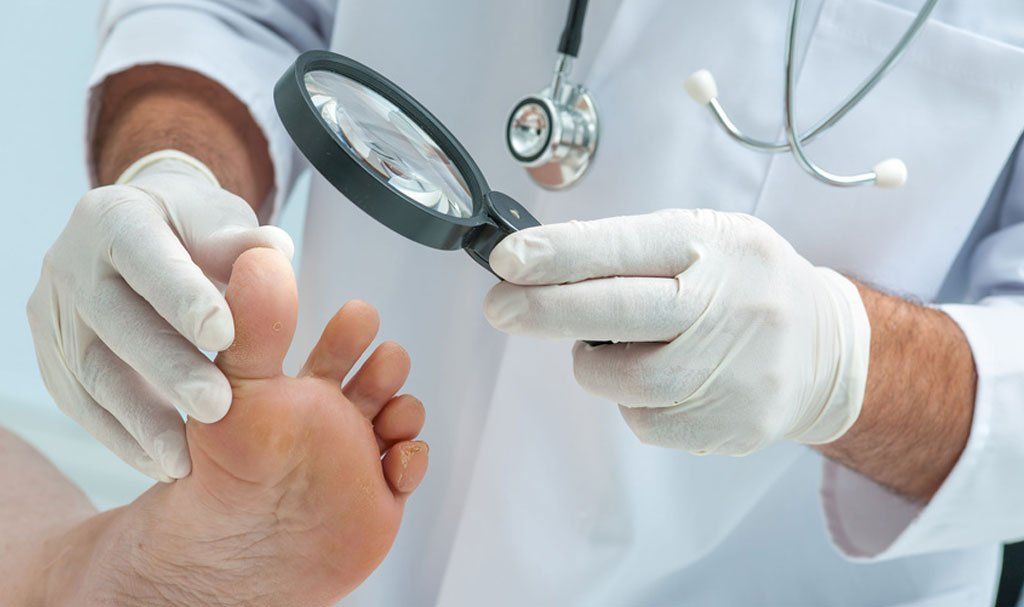Residency Trained & Voted Best
In Grand Island
1325 H St
Geneva, NE
(402) 759-4924
Residency Trained
& Voted Best In Grand Island
Bunion and Corn Treatments
Same-Day Appointments, When Available | Locally Owned | Grand Island's Only Cold Laser Treatment
Grand Island Native Since 1965
Same-Day Appointments, When Available
Locally Owned
Grand Island's Only Cold Laser Treatment
Grand Island Native Since 1965
See Us for Proven Bunion and Corn Procedures
At Mid Nebraska Foot Clinic , you'll find effective treatments for bunions and corns. Same-day appointments may be available, so call us now.
What Are Bunions and What Causes Them?
- Irritated, red, or calloused skin on the inner edge of your big toe
- A bony protrusion on the big toe
- Pain or discomfort over the joint that is aggravated by the pressure caused by shoes
- When the big toe turns outward toward other toes
The most common cause of bunions is wearing tight shoes that cause your toes to crowd together. There is a certain genetic predisposition that can cause bunions to more easily appear. Particular foot types cause bunions to develop quicker under circumstances such as wearing constraining footwear. Women often get bunions more than men due to wearing high heels. Another common cause can be standing for a prolonged period.
How We Can Treat Bunions
Due to the progressive nature of bunions, they will not go away on their own. Arrange a consultation at Mid Nebraska Foot Clinicso that our specialists can take X-rays to assess the severity of the bunion and evaluate the proper procedure to fix it.
Some ways to address the symptoms of bunions can be change in footwear, different orthotics, ice, rest, and medications. Give us a call to set up an appointment, and we can determine whether surgery will be necessary or not.
Call to Schedule an Appointment
Same-day appointments may be available.
(877) 596-1948
Really recommend. Quick and inexpensive treatment offered.
- Carmelita F. on Google
Corns & Treatment
What Are Corns and What Causes Them?
Corns are very similar to calluses and, in fact, the main difference is the location and size of the condition. Corns appear on areas such as your toes or bony protrusions of the feet.
There are definitive boundaries to corns, unlike calluses, which build up in larger areas. Corns can appear between your toes and be softer due to moisture. It is much easier to prevent corns than it is to remove them.
Corns are caused by high pressure or tension in certain spots of the feet, much like calluses, except that corns are more localized and have definitive boundaries. Corns are usually the product of direct friction in a circular or semi-circular motion. They can be painful and unsightly.
Rid Your Feet of Corns
The best prevention practices involve alleviating the areas of tension on the feet by wearing shoes that are more comfortable or using orthopedic inserts. You can self-treat corns with over-the-counter products, but it can be a long and painful process and can result in an infection if not done properly. If you have diabetes, you should not attempt to remove corns as it can cause dangerous complications. Call your local podiatrist at Mid Nebraska Foot Clinicto help find relief.
Depending on the severity of corns, a doctor may be needed to treat it. If self-care does not treat corns within two weeks, you should consult your podiatrist. Prescription medications for corns are much stronger than the over-the-counter medications you can get at the pharmacy.
VISIT US IN GRAND ISLAND
VISIT US IN GENEVA
Fillmore County Specialty Clinic
1900 F Street
Geneva, NE 68361
The Geneva clinic is open on the 2nd and 4th Thursday of each month (except on holidays). To schedule an appointment, please call (402) 759-4924.



Share On: